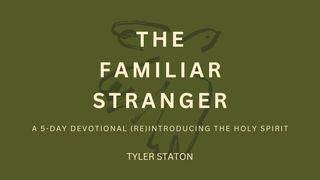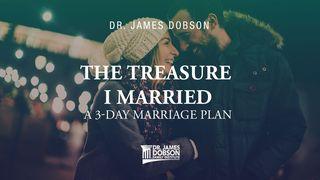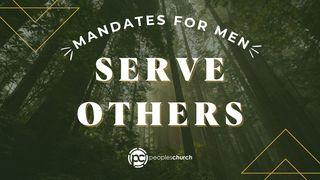Overcoming Father Wounds a 7-Day Reading Play by Kia StephensSample

Day 5: Choose a lifestyle of forgiveness.
Get rid of all bitterness, rage and anger, brawling and slander, along with every form of malice. Be kind and compassionate to one another, forgiving each other, just as in Christ God forgave you. Ephesians 4: 31 - 32
“I don’t forgive him” are words readers have expressed on more than one occasion. I understand these sentiments. When it comes to forgiving someone, sometimes it seems like we take two steps forward and one step back. I’ve definitely felt this way. Sometimes, after mustering up all the strength I can to forgive, I’m seemingly catapulted back to the starting line by another wrong.
But we aren’t just forgiving someone, we are forgiving our fathers. It would be better if it were a stranger, colleague, neighbor or friend; but it is not. It is our father and everyone knows who a father should be in the life of his daughter. He should be a provider, protector, a constant and stable source of love and affirmation. He should be present and attentive. He should be her first positive experience with the male gender. When he is not it is hard to forgive.
I too have voiced my own declarations of don’ts and won’ts concerning my father. Intermingled with an intense desire to know and be known by my daddy, unforgiveness has taken up residence in my heart, moving in and out at will. And though I have wrestled with this state in solitude, I know I’m not alone.
This is why the actions and deeds of a father can attach themselves to the soul of a woman for her entire lifetime. They have the potential to suck the lifeblood out of her completely, leaving her just a shell of the woman she was intended to be. And though she is a fraction of herself, she is not rendered immobile. She still functions—often at a high level— but the pain of her father wounds lingers just beneath the surface.
For this reason, forgiving our fathers is difficult but Christ gives us a compelling reason to forgive. On a cross Christ died for my unforgivable acts—and those of my father. He did this knowing I would grudgingly offer this gift He so freely gave to me. With Christ as my compass, I can release any and every offender. I found strength to make the choice to forgive because I had already been forgiven.
There are several tools we can use to help us forgive our fathers but everything hinges on a single decision. We have to first make the choice to forgive our father. And it must be noted that this choice doesn’t justify the behavior of the guilty party. It doesn’t dismiss or excuse the acts they committed against us. Nor does it require forgetting, denying pain, or reconciliation. Forgiveness is a decision to surrender our right to hold another person responsible for the wrong done to us.
The common misconception regarding forgiveness is that it is for the offender. The truth is, forgiveness is for us. A decision not to forgive will negatively impact our lives.
Have you forgiven your father? Ask God to help you relinquish your right to hold him responsible for the wrong done to you.
Scripture
About this Plan

The world is full of women who have been hurt, neglected, rejected, or abandoned by their father. As a result, women may feel like every aspect of their life is affected by that broken trust. In this 7-day devotion women will discover how they can exchange their father wounds for God’s perfect love.
More









